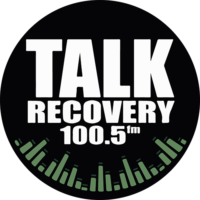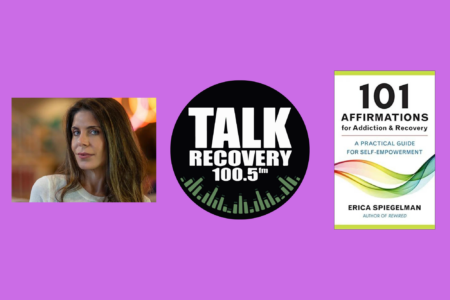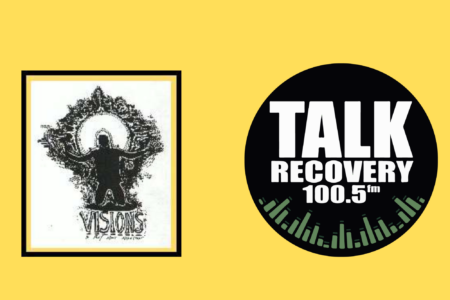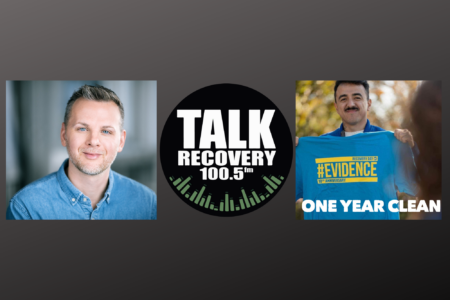Digital UK Rehab Movement
Talk Recovery RadioDigital UK Rehab Movement: Forcing treatment online despite recovery evidence
“There’s more funding than there has ever been in history, more services than there has ever been in history. But the funds are being used on harm reduction only which just treats the symptoms and is not actually treating the addiction.”
From Addict to the voice of UK Recovery
Lester Morse, the Director of Rehab UK and East Coast Recovery, which is bringing online projects and community programs based on recovery-oriented systems of care. For over 30 years he has been working in the field of addiction and is a recovering addict himself and proud member of 12 Step programs. Lester is firm believer in the idea that recovery needs an ecosystem of community supports and services to be sustainable and easily accessible to everyone who wants it.
Lester himself found recovery on Galliano Island over thirty years ago in what he described as one of the most densely populated 12 Step areas in the world at that time. The recovery community there met multiple times a week and instilled in Lester the importance of a strong community of peer support that was able to love him until he was able to learn to love himself, a main tenant of Narcotics Anonymous and Alcoholics Anonymous programs. Those pivotal years of fellowship and support for him after he hit rock bottom in his addiction laid the groundwork for the success, he has seen in building recovery capital in the UK through running a 45-bed residential treatment for over 15 years and numerous other programs like Rehab UK and East Coast Recovery along with Recovery Revolution Podcast.
What is Rehabs UK?
Rehabs UK is a free and confidential addiction recovery support service. Partnered with a broad range of trusted clinics throughout the UK and in Europe, the Rehab UK team works to find the best possible match for everyone at the beginning of their recovery journey. Rehab UK’s purpose is to ensure that every individual struggling with addiction or mental health receives the support and advice they need to begin their recovery journey.
Lester explains that Rehab UK was born out of the UK government decimating the funding for recovery throughout the country by over 50%. As a response, many residential recovery centres including the one Lester ran were forced to shut their doors. Lester still wanted to have resources available for people and that meant moving online to supply the recovery capital that was being denied in real life. Despite resounding qualitative evidence and lived experiences supporting recovery the decision was made to redirect funding to support harm reduction methods alone. As Lester explains it shouldn’t be one or the other, but rather both working together to provide people with an easily accessible path to living healthy, happy and productive lives in recovery.
“We’ve had nine consecutive years of record-breaking death rates, which we can only conclude means that the mental health services are failing, the prison system is failing.” Says Lester. He asks where the statistics are on human suffering because obviously the current practices are not dealing with the pain and suffering of addicts and their families and communities.
New Research: changing the discussion
Lester referenced an independent review of drugs report by Dame Carol Black, in which the impact of defunding recovery and recovery treatment centers as looked at and showed that it has negatively impacted people and communities across the UK. This evidence-based report is clearly in opposition to current government programs that focus solely on harm reduction and safe supply. Recovery isn’t just about improving the life of an addict but that of the communities people inhabit, and defunding recovery is defunding our communities and community safety.
Sonya’s lived experience
“I needed to be accountable to people. I needed people to say, turn left, turn right, do this, do that. And I didn’t have a home, I didn’t have a computer, I didn’t have a phone.” Says Sonya in response to resources now only being available online for many people in the United Kingdom. Sonya like many other people did not have the basic life skills, emotional intelligence, or capacity to make online tools and resources work. She like so many others needed the residential based treatment model to provide her the opportunity to not only get clean but learn to function as an adult. The other side of that is the people who are usually in that situation of lacking basic life skills are also the people that are generally funded by the government. Sonya didn’t have the resources to pay for private treatment and it took her multiple years to fully move into recovery as opposed to the prescribed 30 day to 6 weeks the government is willing to look at.
Sonya spent years in and out of Her Majesty’s Prison for theft and violence and drug related offences. And luckily Narcotics Anonymous and Alcoholics Anonymous meetings were being offered in prisons and that is where she was introduced to the idea of recovery. But a senior officer in the prison told Sonya that she was too damaged, that she would never get clean or stay clean. But that was not true. It’s a lie that is often perpetuated about addicts from politicians to medical professionals, but it simply isn’t true. You are never too far gone, or incapable of recovery, there is also an opportunity and hope.
“So I went back to the prison, to make amends to the woman because I was a bit of pain in the butt when I was there. She said to me ‘I am so sorry Sonya. I can’t believe that you’ve done so much in the last three years, your life is totally exploded, and you look amazing.’ It was a wonderful opportunity.”
The only reason Sonya was able to make the changes in her life and become a mother, a successful businesswoman working to better the community she lives in, is because of the fellowship and community that helped restore her to sanity through recovery. Sonya built recovery capital, social capital, human capital and physical capital through the treatment she received at the residential recovery treatment centre run by Lester.
What is the Solution?
Sonya recounts that it was remaining active in her recovery that kept her from relapse. Being pushed to go to the gym, go swimming with friends, get out in the community and become part of it. This encouragement from Lester and others in the recovery space is known as building recovery capital. Going to the gym, volunteering, and building connections with your peers is just as important as taking your prescribed medication, or sitting with your psychiatrist. It is about building on the strengths available to you for better overall health and raising the quality of life. That is what recovery from addiction is, building better quality of life free from dependence on substances and compulsive behaviours. To that Lester, Sonya and many others support a Recovery-Oriented System of Care which encompasses the ecosystem of resources and supports needed to recover.
Rehab UK and East Coast Recovery Social Media Pages
Rehab UK
Facebook | LinkedIn | Instagram | Twitter | Website
East Coast Recovery
Facebook | LinkedIn | Instagram | Twitter | Website
Listen and Subscribe
Talk Recovery airs live every Thursday at noon on 100.5 FM, Vancouver Coop Radio. The Last Door produces this weekly radio show discussing the many pathways to addiction recovery. To end stigma we must continue to talk about recovery. Talk Recovery is in its 7th Season, Hundreds of guests, thousands of listeners, thank you. Show ideas? Email community@lastdoor.org
Powered by #NewWestRecovery












